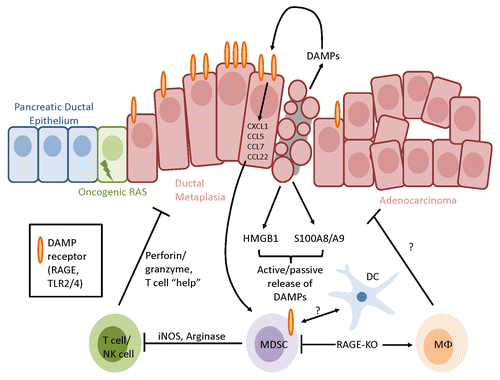Figures & data
Figure 1. RAGE signaling recruits myeloid-derived suppressor cells and dendritic cells. Receptor for advanced glycation end products (RAGE) ligands such as high mobility group box 1 HMGB1 and S100A8/A9 are actively secreted or passively released in the tumor microenvironment by stressed and dying malignant cells as well as by specific immune cells. The activation of RAGE, which is often overexpressed on transformed cells, cause the expression of chemokines involved in angiogenesis and tissue repair while favoring the intratumoral accumulation of myeloid-derived suppressor cells (MDSCs). In the absence of RAGE, MDSCs fail to accumulate and are replaced by mature macrophage-like cells, overall resulting in the inhibition of carcinogenesis. DC, dendritic cell.
